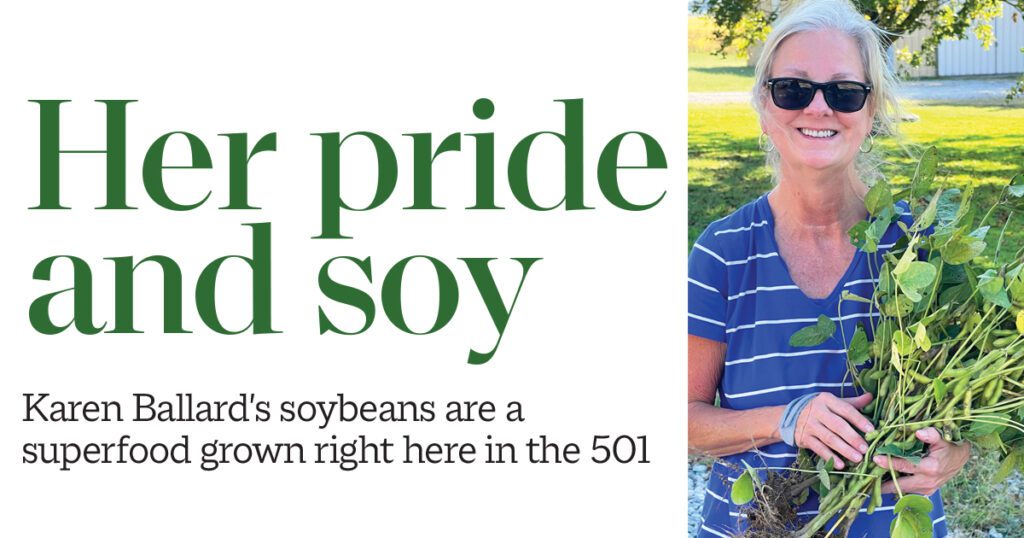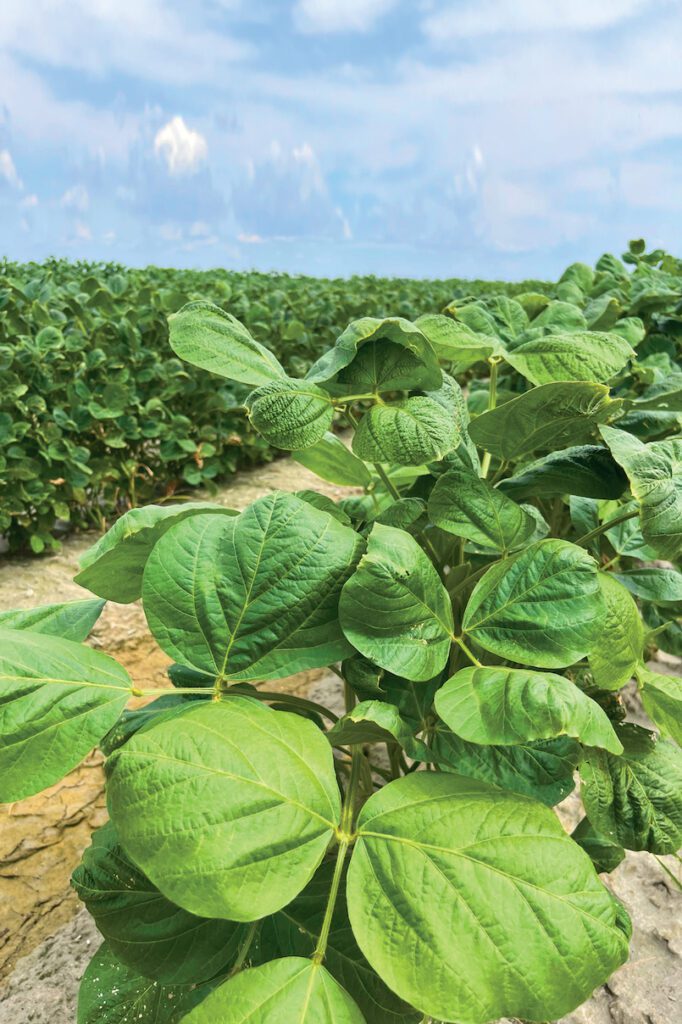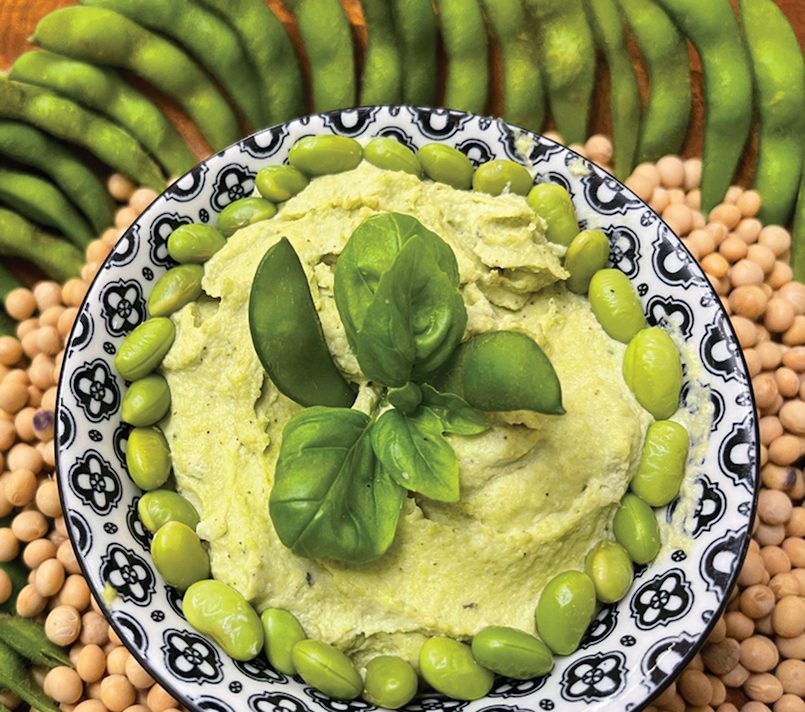02 Jun 2023 Her pride and soy
By Judy Riley
When Karen Ballard started growing edible soybeans, it was out of a medical need. According to Ballard, “A tick bite resulting in an Alpha-gal allergy was a life-changing event for me.” After several anaphylactic episodes and visits to the emergency room, she set out to change her diet. Alpha-gal is an allergy to mammals and, in her case, dairy. She needed to change her diet or risk major health consequences.

Ballard’s research background with the University of Arkansas Division of Agriculture plunged her into “overdrive,” studying vegetable soybeans. Her goal was to put protein back on her plate. But like all good researchers, sharing her findings widely became a quest. She was diagnosed in January of 2019, and B&B Legacy Farms was incorporated in July to make locally grown vegetable soybeans available in Arkansas. We in the 501 are beneficiaries of her work, which includes B&B’s monthly food blog.
According to Ballard, soy is the original heirloom food. Historical accounts reveal that soybeans were one of the five grains cultivated by the Yellow Emperor in China more than 7,000 years ago. Soybeans were domesticated by Chinese farmers around 1100 BC. Americans have eaten soy as a food additive for years in the form of soy sauce. Consumption of whole vegetable soybeans has recently gained recognition by major medical groups. Soy is the gold standard for plant-based protein. Soy is a complete protein, with no cholesterol, very little saturated fat, yet high in fiber and dense with nutrients. Populations that have historically consumed whole soy foods on a regular basis have admirable health outcomes.

Even though Ballard and her husband, Danny, both grew up surrounded by soybean fields, they never considered their human food value. B&B is a small mom-and-pop operation. Ballard quickly gives credit to long-term friends who have supported the business development process from the beginning. The Ballards currently split their time between their home in Natural Steps with their 550-acre farm near Beedeville in Woodruff County. They grow corn, rice and soybeans on a rotational basis. A collaborating farmer grows multiple varieties of B&B’s non-GMO (genetically modified organism) vegetable soybeans on small acreage plots that are identity-preserved and cleaned on-site. There are more than 2,500 soy varieties around the world, and they come in all shapes, colors and sizes. Ballard has been working with 40 varieties, including the well-known edamame.
Ballard’s role at the B&B Legacy Farms farm is production planning with a collaborating farmer to test, select and grow food-grade soy varieties. Both Ballards manage the packaging, marketing and distribution of dry vegetable soybeans. She develops new soy recipes each month for her B&B food blog, which can be accessed at bandblegacyfarms.com. Information shared and recipe photos look like something out of a famous chef’s lab, but dishes are developed, tested and photographed right in her own kitchen. Her network of friends and associates are fortunate to be included in taste testing.
According to Ballard, whole vegetable soybeans play well with other foods and make nutritious snacks. One of her favorites is steamed edamame, hummus and black soybean salsa. Her recipes include barbecue soybeans, edamame stir-fry, soybeans and rice, Mexican chicken, lasagna and enchiladas. She has even created desserts to include soybeans: bread pudding, chocolate mousse and peach cobbler. B&B provides “how to cook” help with these traditional Southern family recipes at bandblegacyfarms.com/soy-kitchen. Her absolute favorite soy recipe is freezer soybeans. Beans are pre-cooked and stored in airtight containers. With soybeans’ high protein composition, they are one of few beans that maintain their structure when frozen. This allows soy to become a convenient food staple for home kitchens.

B&B products are currently available year-round in the 501. Escomame edamame seed and three varieties of dry vegetable soybeans — a small yellow natto variety (Soylicious), a yellow variety that is excellent for soy milk and tofu making (Southern Soy), and a black soybean — are all available from the Green Corner Store and the Arkansas Local Food Network in Little Rock. They have recently been added to the Russellville Community Market. B&B’s end goal is to one day have whole soy on the menu in every Arkansas school. Ninety-seven percent of students who taste-tested her whole soy dishes agree. Have more questions about Arkansas-grown whole vegetable soybeans? If so, contact Karen at [email protected].








